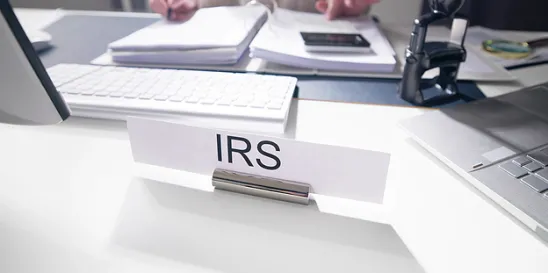The Inflation Reduction Act (IRA), enacted in August 2022, appropriated billions of dollars in additional funding to the Internal Revenue Service (IRS). The IRS has begun allocating funds, including investing in artificial intelligence (AI) and other new technologies, as well as increasing scrutiny of partnerships and other flow-through entities.
The Use of AI
In a Strategic Operating Plan released in April 2023, the IRS outlined its key priorities for the IRA funding. The plan noted a focus on closing the tax gap (the difference between, on the one hand, taxes actually paid and, on the other hand, taxes due assuming perfect compliance by taxpayers), which was most recently estimated to be approximately $496 billion, and a focus on quickly resolving taxpayer issues. One key objective identified in the plan is to use IRA funding to update technological capabilities and invest in employees.
According to IRS Commissioner Daniel Werfel, AI is helping the IRS to identify patterns and trends that support the agency’s efforts to examine more complicated structures used to shield income. The IRS has utilized automation and statistical models for a long time, but AI provides an enhanced level of scrutiny that was previously unavailable. For example, experts in data science and tax enforcement have collaborated to implement machine learning technologies to identify potential compliance risks in various areas. The IRS can also use AI not only to identify taxpayers for audit, but also to provide expanded taxpayer services through self-service options using voicebots and chatbots.
Key Focus Areas
In September 2023, the IRS announced specific efforts and plans designed to leverage the increase in its funding from the IRA. The efforts focus on shifting enforcement attention to wealthier taxpayers, partnerships, and other high earners. These categories of taxpayers generally saw reductions in audit rates over the past decade. Additionally, according to the US Government Accountability Office (GAO), of the audits that have been conducted, approximately 80% did not find tax compliance problems.
Part of the current effort is a focus on expanding projects that have already shown success. For example, in 2021, the IRS launched the first stage of the Large Partnership Compliance (LPC) Program with “examinations of some of the largest and most complex partnership returns in the filing population.” The IRS plans to use the IRA funding to build on the LPC Program and expand it to examine additional large partnerships. The IRS is also focusing on new and emerging technologies. AI, in particular, has become a key component of the LPC Program and is being used in the selection of returns for examination.
The IRS is opening examinations of 75 of the largest partnerships in the United States. These large partnerships have, on average, $10 billion or more of assets and represent a cross-section of industries, including hedge funds, real estate investment partnerships, and publicly traded partnerships.
Going forward, the IRS will expand its focus on partnerships with over $10 million in assets that have discrepancies on their balance sheets, as well as high-income taxpayers with total positive income above $1 million and more than $250,000 in recognized tax debt. As of the September 2023 announcement, the IRS planned to contact 500 identified partnerships with balance sheet discrepancies and was in the process of contacting 1,600 high-income taxpayers with high tax balances due. Additional priority areas for the IRS include (1) digital assets (as part of the IRS Virtual Currency Compliance Campaign, more cases will be developed early in 2024), (2) egregious noncompliance with Foreign Bank and Financial Accounts (FBAR) requirements, (3) proper employment tax withholding for vulnerable workers, and (4) continued work to combat emerging scams and schemes.
The IRS is seeking to recruit 3,700 experienced revenue agents nationwide to help with the expanded enforcement initiatives targeting complex partnerships and large corporations. The IRS is also recruiting data scientists to develop AI tools.
A partnership or other pass-through entity audit can be a highly complex process and may lead to unexpected results. Taxpayers should be proactive in identifying potential compliance gaps and managing tax risks.





 />i
/>i
